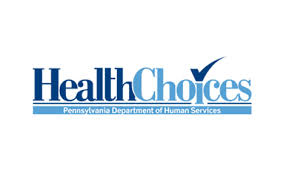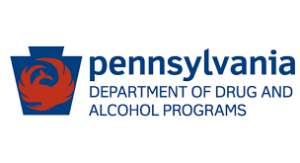PA Health Policy Update for Friday, September 16
The following is an update of selected state health policy developments in Pennsylvania for the week of September 12-16, 2022. (Some of the language used below is taken directly from state documents.)
 General Assembly
General Assembly
The state House convened for voting session this week. The following is an overview of selected health-related legislative activity.
- The House unanimously passed House Bill 1630, which grants the Pennsylvania Auditor General the authority to audit managed care contracts and subcontracts with pharmacy benefit managers in Medicaid. The bill was received in the Senate and referred to the Health & Human Services Committee.
- The House unanimously passed House Bill 1693, which requires nursing home residents to be notified at the time of their admission that they have the option of having legal representation to assist with applying for Medicaid benefits. The bill will now be sent to the Senate.
- The House Insurance Committee favorably reported Senate Bill 1201, which ensures coverage for early refills of prescription eye drops at 70 percent of the original prescription price, and House Bill 2499, which adopts the National Association of Insurance Commissioners’ model law requiring insurers, with exceptions for small insurers, to conduct an annual risk assessment.
- The House Professional Licensure Committee favorably reported House Bill 2800, which amends the Medical Practice Act to address an issue related to the licensure of prosthetists, orthotists, pedorthists, and orthotic fitters in Pennsylvania.
- The House Republican Policy Committee held an informational meeting on Monday to examine the Supreme Court’s recent decision to eliminate the existing requirement that a medical professional liability action may only be filed in the county in which the cause of action occurred. A recording of the meeting and testimony submitted to the committee may be viewed here.
- The House Human Services Committee favorably reported House Bill 2686, as amended, which establishes a grant program to support the start-up costs of a behavioral health collaborative care model in medical practices.
- The House Children & Youth Committee held an informational meeting this week to examine “Child & Adolescent Fatality Trends & Community Responses.” A video recording of the hearing may be viewed here.
The state House and Senate will be in session next Monday (9/19), Tuesday (9/20), and Wednesday (9/21). The following is an overview of selected health-related committee meetings next week.
- The House Insurance Committee will convene on Tuesday, September 20 at 10:00 a.m. to consider Senate Bill 225, which seeks to streamline and standardize the process for prior authorization of medical services.
- The Senate Health & Human Services Committee will hold an informational hearing on Tuesday, September 20 at 11:00 a.m. on the tick crisis in Pennsylvania.
- The House and Senate Democratic Policy Committees will hold a joint hearing on Friday, September 23 to discuss Senate Bill 860 and House Bill 1848 and the need for Pennsylvania to establish a statewide rape-kit tracking system.
 Department of Human Services
Department of Human Services
- The Department of Human Services (DHS) has issued a Medical Assistance Bulletin notifying providers of updates to the Medical Assistance program fee schedule for adult vaccines. Find the bulletin here.
- DHS has extended its calendar for remittance advice (RA) electronic transfer and mailing dates into November. Find the updated calendar here.
- DHS has published information about improvements in how providers can update their enrollment summary in the state’s PROMISe provider internet portal. Find the notice here.
- DHS has revised its list of drug companies participating in the state’s Medicaid drug rebate program. Find the updated list here.
- In July, DHS proposed new regulations governing the delivery of psychiatric rehabilitation services, and in particular, on the use of telehealth in the delivery of those services. Now, Pennsylvania’s Independent Regulatory Review Commission has published its analysis of the proposed regulation and shared comments submitted by stakeholders in response to the proposed changes. Find the commission’s analysis and stakeholder comments in this Pennsylvania Bulletin notice.
- DHS has issued a Medical Assistance Bulletin to announce that it has issued an updated School-Based ACCESS Program provider handbook. Find that bulletin and the updated handbook here.
- DHS has posted a notice announcing to stakeholders that it has not yet calculated Medicaid hospice rates for FY 2023 and explaining its process for completing those calculations and notifying affected parties. Find that notice here.
Behavioral Health Commission for Adult Mental Health
The Behavioral Health Commission for Adult Mental Health created to develop recommendations for how to allocate $100 million appropriated for adult mental health purposes in the state’s FY 2023 budget held its fourth public meeting this week. The first part of the meeting focused on workforce development issues, with participants identifying the biggest challenges in workforce development as recruitment, retention, licensing, lack of funding for loan repayment and salary increases, lack of career pathways and pipelines, and burnout.
After additional discussion, commission members decided they should organize their spending recommendations into four categories: workforce ($37 million of the $100 million available), expanding services ($36.7 million), criminal justice ($23.3 million), and other ($3 million); they also discussed priorities within each category. The commission’s final report and recommendations should be presented to the legislature next week but no money will be spent until the General Assembly, which will only meet a few more days this year, specifically authorizes it. Learn more about the Behavioral Health Commission for Adult Mental Health from its section of the DHS web site.
 Department of Health
Department of Health
The Department of Health has notified licensed providers that although the CDC now considers individuals up to date with their COVID-19 vaccinations only if they have had a dose of the new bivalent booster shot, providers should continue to consider individuals up to date if they have received either a monovalent or bivalent booster shot on the recommended schedule. Learn more from the Department of Health’s letter to providers.
COVID-19: By the Numbers
- The weekly average of newly reported COVID-19 cases in Pennsylvania and COVID-related deaths continues to hold relatively steady.
- The number of people hospitalized with COVID-19 and in hospital ICUs and on ventilators because of the virus also remains relatively unchanged.
- According to the CDC, 74.5 percent of Pennsylvanians five years of age and older are now vaccinated.
- Sixty-five of Pennsylvania’s 67 counties continue to have a high rate of community transmission of COVID-19. Delaware and Philadelphia counties are currently experiencing “only” substantial rates.
Monkeypox
The CDC has posted an updated map showing the distribution of 23,117 confirmed cases of monkeypox in the U.S. as of September 15, up from 21,504 cases on September 1. 684 of those cases were in Pennsylvania, up from 624 a week ago.
Department of Drug and Alcohol Programs
The Department of Drug and Alcohol Programs is offering online training on substance use disorder confidentiality. This updated training incorporates changes based on passage of Pennsylvania Act 33, the Pennsylvania Drug and Alcohol Abuse Control Act, in July. Learn how to receive the training from this Department of Drug and Alcohol Programs notice. Participants can earn PCB continuing education credits.
Stakeholder Events
DHS – Medical Assistance Advisory Committee Consumer Subcommittee – September 21
The consumer subcommittee of DHS’s Medical Assistance Advisory Committee will meet virtually on Wednesday, September 21 at 1:00. Go here to register to participate.
DHS – Medical Assistance Advisory Committee – September 22
DHS’s Medical Assistance Advisory Committee will meet virtually on Thursday, September 22 at 10:00. Go here to register to participate.
Department of Health – Infant Hearing Screening Advisory Committee – September 22
The Department of Health’s Infant Hearing Screening Advisory Committee will hold a virtual public meeting on Thursday, September 22 at 1:00. For information about how to participate, see this Pennsylvania Bulletin notice.
Pennsylvania Rare Disease Advisory Council Stakeholder Summit – September 22
The Rare Disease Advisory Council will hold a stakeholder summit on Thursday, September 22. The summit will feature panels on gene therapy, newborn screening, and the results of the council’s Patient Needs Assessment Survey. Learn more about the stakeholder summit here.
Department of Human Services – Special Populations/Dementia Issues September 22
DHS’s Long-Term Care Learning Network, part of its quality strategy for nursing facilities, is offering in collaboration with the Community HealthChoices managed care organizations and the Jewish Healthcare Foundation a webinar on how facilities can help community members understand what dementia is, how it affects people, and how individuals can make a difference in the lives of those touched by dementia. The webinar, to be held on Thursday, September 22 at 2:00, is especially recommended for community liaisons, non-clinical teams, nurse educators, service coordinators, and volunteers. Learn more from this webinar notice.
DHS – Medical Assistance Advisory Committee – Managed Long-Term Services and Supports Subcommittee Meeting – October 4
The Medical Assistance Advisory Committee’s managed long-term services and supports subcommittee will meet in Harrisburg on Tuesday, October 4 at 10:00; interested parties also may participate virtually. For information about the location of the meeting or to register to participate virtually, see this DHS notice.
DHS – Office of Mental Health and Substance Abuse Services and Office of Developmental Programs – Suicide Prevention – October 21
The Department of Human Services’ Office of Mental Health and Substance Abuse Services (OMHSAS) and the Office of Developmental Programs will host a quarterly “Statewide Positive Approaches & Practices” meeting that will share the most recent research and resources to help people with mental health and behavioral challenges, intellectual disabilities, autism, and other developmental disabilities live everyday lives. The specific subject of the meeting, to be held on Friday, October 21 at 9:00, will be suicide prevention and intervention. Find the meeting agenda and information about how to register to participate from this DHS notice.
Department of Health – Pennsylvania Achieving Better Care by Monitoring All Prescriptions Board – October 25
The Department of Health’s Pennsylvania Achieving Better Care by Monitoring All Prescriptions Board will hold its next meeting on Tuesday, October 25 at 9:30. The meeting location will depend on COVID-19 mitigation efforts at that time. If the meeting can be held in person it will be in Room 129 in the Pennsylvania Health and Welfare Building at 625 Forster Street in Harrisburg. If the meeting is held virtually it will be held at bit.ly/ABC_MAP. To dial in, call 267-332-8737, conference ID 440 338 696#. Learn more from this Pennsylvania Bulletin notice.
 General Assembly
General Assembly Stakeholder Events
Stakeholder Events Governor Wolf
Governor Wolf FY 2023 Budget Update
FY 2023 Budget Update General Assembly
General Assembly Governor Wolf
Governor Wolf Department of Drug and Alcohol Programs
Department of Drug and Alcohol Programs General Assembly
General Assembly HealthChoices Changes
HealthChoices Changes Pennsylvania Health Care Cost Containment Council (PHC4)
Pennsylvania Health Care Cost Containment Council (PHC4) General Assembly
General Assembly Department of Drug and Alcohol Programs
Department of Drug and Alcohol Programs Primary Election
Primary Election